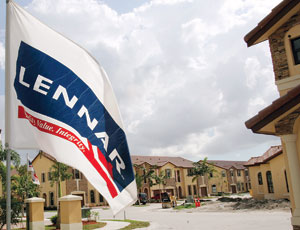Chinese-made drywall is causing off-gassing and corrosion problems in Florida, prompting at least two lawsuits. Powerplant fly ash used in manufacturing the product may be a possible culprit.

The Florida Dept. of Health has received 68 odor complaints from homeowners. Lennar Corp., Miami, on Jan. 30 filed a lawsuit in the Circuit Court of the 11th Judicial Circuit, Miami-Dade County, against several manufacturers, eight suppliers and 12 installers. The suit alleges the manufacturers made deficient and defective gypsum drywall and failed to warn customers.
Knauf Gips KG, Knauf Plasterboard (Tianjin) Co. Ltd. and Taishan Gypsum Co. Ltd. are charged with product liability and negligence, the suppliers with product liability and breach of implied warranty and the installers with breach of contract and breach of express and implied warranties. "Our investigation in southwest Florida shows independent sub-contractors installed Chinese drywall in a very small percentage of Lennar homes built between November 2005 and November 2006," says Darin McMurray, Lennar division president. Problems started with failures in heating and air-conditioning systems.
In Fort Myers, a class-action complaint was filed on Jan. 30 in U.S. District Court charging Knauf-made drywall was "inherently defective" and caused corrosion and health concerns. The suit alleges Knauf drywall is made from fly ash, compounds of which combine with moisture to form sulfuric acid that can corrode copper tubing and electrical wiring. About 10 million sq ft of Knauf-made drywall was used in the state between 2004 and 2006, according to the complaint.
Knauf states that it is conducting a thorough investigation and cooperating with builders and the Dept of Health.
In late 2006, EMSL Analytical Inc., Westmont, N.J., a materials testing service, began receiving customer calls complaining of a noticeable rotten-egg smell. There also were complaints about black-sulfur copper corrosion leading to failure of air-conditioner evaporator coils.
"We don’t know whether this is strictly a material issue or if climate also is involved," says Vincent M. Daliessio, EMSL industrial hygiene project manager. Test results are inconclusive. "We are seeing slightly elevated carbon disulfide and carbonyl sulfide of 2 ppb to 10 ppb, which is well below the EPA guideline of 234 ppb, so it doesn’t appear to be an acute hazard to human health," says Daliessio.
EMSL also is putting air samples in an environmental chamber to try and increase the odds of finding the two chemicals or related compounds of hydrogen sulfide and sulfur dioxide. They have placed copper strips in contact with the drywall to try and replicate black-copper corrosion. But the major problem could be iron and iron disulfide (iron pyrite). "We suspect iron pyrite impurities may be a cause," says Daliessio. "The drywall contains these compounds, which don’t seem to be present in domestically produced drywall."
Daliessio notes that drywall is almost always made up of calcium sulfate. There are two primary sources: gypsum mines and recovered fly ash from coal-fired powerplants. The Gypsum Association, Hyattsville, Md., reports that some 300 million sq ft of gypsum board was imported from China in 2006-2007. During the same period, approximately 65.7 billion sq ft of gypsum board was used in the U.S.

Post a comment to this article
Report Abusive Comment